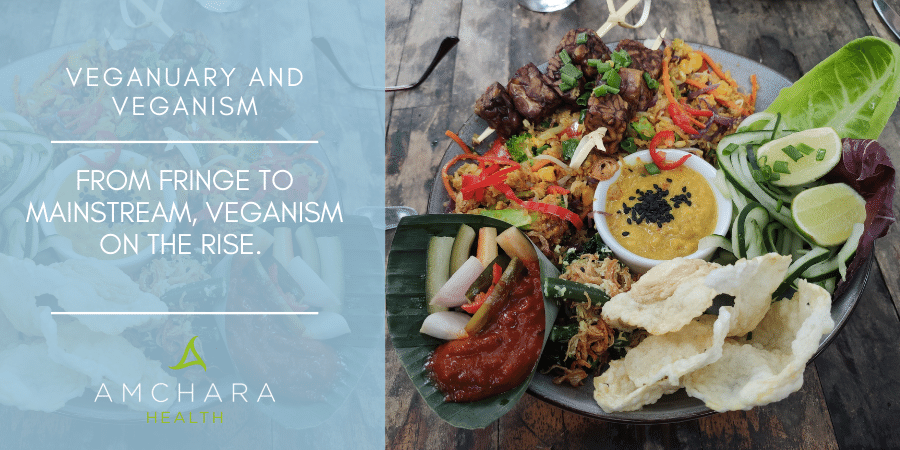Topics Covered in this article:
Veganism is on the rise, and the January Veganuary campaign is growing year on year in popularity, in terms of uptake.
According to Veganuary, January 2020 saw Veganuary figures increase to around 350,000. In January 2021 over 582,000 people from 209 countries took the pledge to eat vegan for a month.
In 2020-2021 the number of vegans in the UK increased by 40%, and there are an estimated 13 million Brits who currently follow choose to eat meat-free. It is projected that by 2025 vegans and vegetarians will make up a quarter of the British population.
Additionally, 1 in 5 Brits were planning to incorporate vegan dishes into their Christmas dinner in 2021. The increasing popularity of veganism is reflected by the fact that all the UK top supermarkets now sell their own vegan ranges.
We always take an evidence-based approach and aim to provide you with actionable knowledge and tips to help you on your journey to optimal health.
In this article we’ll take a closer look at veganism and how to ensure you maintain a healthy, balanced nutritional intake if you’re thinking about choosing to go plant-based for Veganuary, or beyond.
The vegan philosophy
The Vegan Society states, “Veganism is a philosophy and way of living which seeks to exclude – as far as is possible and practicable – all forms of exploitation of, and cruelty to, animals for food, clothing or any other purpose; and by extension, promotes the development and use of animal-free alternatives for the benefit of animals, humans and the environment. In dietary terms it denotes the practice of dispensing with all products derived wholly or partly from animals.”
As well as abstaining from eating obviously animal derived products such as meat, eggs and dairy, or those including animal derivatives such as gelatin or lactose, veganism is increasingly about making lifestyle choices beyond nutrition.
These include avoiding use or consumption of secondary products such as leather, clothing, accessories, cleaning and beauty products that have been tested on animals, or include animal derived products.
Other reasons behind the growing trend in veganism include concerns about global demand on resources to produce meat products, and the impact of meat production in terms of environmental sustainability.
Perhaps the primary driver in choosing to adopt a vegan lifestyle is the perceived positive impact of veganism contributing to the ability to live a healthier, longer life.
What can you eat?
Veganism incorporates a range of foods. Focusing on plant-based nutrition including vegetables, fruits, whole grains and nuts and seeds provides plenty of beneficial fibre, antioxidants, polyphenols and other compounds to protect your health.
Veganism also includes options such as legumes – lentils, peas and beans – which are a good source of protein. Quinoa and hemp are also useful protein choices. Vegans can also consume dairy alternatives such as almond and soy milk, as well as carbohydrate staples of foods including bread, rice and pasta.
Whilst a vegan diet has been shown to have health benefits, it is important to remember that not all foods are equal. With an increasing array of vegan processed foods available on the market, it is important to realise that just because a product is vegan, if it has been highly processed, it is not an especially healthy choice. Processed vegan foods are likely to be laden with additives such as sodium, and other preservatives, processed oils and artificial ingredients, resulting in low nutrient quality overall.
It can be tempting to choose soya protein based products as a meat alternative. Remember though that processed soya is not the same as fermented soya found in miso and tempeh, and is often genetically modified. Additionally, many people are sensitive to soya and consumption can cause an unpleasant physiological response. Opt for ‘clean’, unprocessed, whole foods wherever possible.
Vitamin B12
A commonly cited concern with veganism is whether it typically provides adequate Vitamin B12 levels as there are limited vegan food sources of B12. This vitamin protects against nerve damage, and is found in dairy, eggs, meat and fish, but is not present in fruit and vegetables.
Choosing to eat foods that have been fortified with Vitamin B12 at least twice a day is an option – some breakfast cereals, plant milks, and soy products are fortified. Nutritional yeast is a rich source of B Vitamins including B12, as well as zinc and Vitamin D. Supplementation can also be beneficial to ensure adequate Vitamin B12 intake and avoid deficiency.
Improve your health
Studies have shown vegans to have lower risk of developing various chronic health conditions, including heart disease, obesity, diabetes and some types of cancer, as well as typically benefiting from lower cholesterol and lower blood pressure.
Reducing consumption of red meat is being increasingly shown by research to improve health. Avoiding eating animal products also typically results in a decrease in intake of saturated fats and trans fats, excessive consumption of which are known to contribute to the development of many health related issues and conditions.
If you do choose to eat meat, be aware that grass-fed beef for example typically contains less fat (and therefore calories) than grain-fed beef, and it also contains significantly higher levels of beneficial omega-3 fatty acids, as well as other vitamins such as vitamins A, B and E and other antioxidants.
It is important to realise the health difference between consuming unprocessed rather than processed meat – the International Agency for Research on Cancer (IARC) stated that the consumption of red meat and processed meat was classified as “probably carcinogenic to humans” and “carcinogenic to humans”, respectively, partly as a result of meat processing methods such as curing and smoking.
Environmental sustainability
Meat production consumes more resources such as energy, water, and land and so it follows that adopting veganism is better for the environment in terms of reducing your carbon footprint.
Cattle milk production comes second after beef production in terms of producing the most emissions, according to the Food and Agriculture Organisation of the United Nations. Primarily as a result both of manure storage and the usage of fertilisers, animal agriculture causes the emission of the two main greenhouse gases, methane and nitrous oxide.
Takeaway
There are many benefits to choosing veganism, from improving your health in terms of nutrition and lifestyle, to reducing your carbon footprint, choosing to live more sustainably, and relieving pressure on environmental resources.
Our experienced Personalised Health practitioners at Amchara will work with you to explore positive lifestyle choices for you, including nutrition and plant-based eating, taking into account your individual circumstances.
We know that sharing knowledge and experiences can be an important part of achieving optimal health, we’d love to know how committing to Veganuary or simply adopting veganism has been for you.





